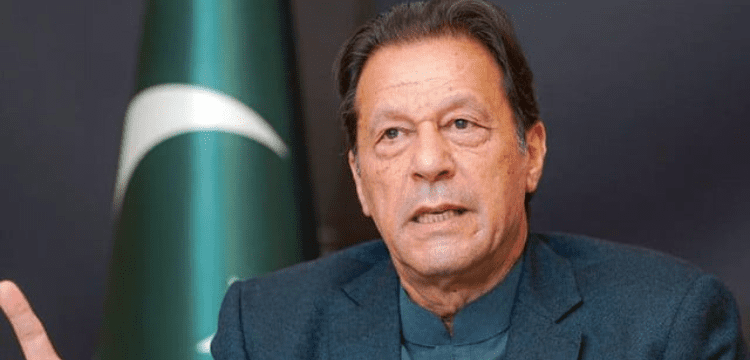[vc_row][vc_column][vc_column_text dp_text_size=”size-4″]ISLAMABAD: Political experts have expressed confusion over Imran Khan’s announcement of “Jail Bhari Tehreek” and request for party members to prepare for courting arrests, and they have urged the former prime minister to act like a gentleman and refrain from making rash decisions. Imran Khan is the chairman of the Pakistan Tehreek-e-Insaf (PTI).
The arrest effort by Imran Khan has minimal likelihood of success, according to several experts. Even one of them said Imran should adhere to the Constitution and the parliamentary system while maintaining his convictions.
If the PTI leader wanted to be regarded as a statesman, he had to work within the confines of the Constitution and the legislative system, and he should try to follow Quaid-i-Azam Muhammad Ali Jinnah’s constitutionalism rather than Mahatma Gandhi’s agitational approach.
Others, on the other hand, saw the declaration as Imran continuing his practise of conveniently using his playbooks when necessary to achieve his objectives, asserting that it is a tactic for political mobilisation and moving the political conflict forward.
On Saturday, the PTI leader made the “Jail Bharo Tehreek” announcement in retaliation to the government’s savage attempts to silence the opposition. He claimed that he would soon give the go-ahead to do so, at which point the party leadership would begin “courting arrests.”
Ahmed Bilal Mehboob, president of the Pakistan Institute of Legislative Development and Transparency (PILDAT), said, “I consider this division as a continuation of his long series of rash decisions, especially the two dealings – en masse resignations from the National Assembly followed by the dissolution of Punjab and K-P [Khyber Pakhtunkhwa assemblies.
According to the PIDAT leader, Imran’s actions might be good if he merely wanted to be known as an agitator and an effective organiser of resistance, but if he wanted to be recognised for making a positive contribution, he would need to act as a statesman.
In contrast to Gandhi Ji’s agitations and non-cooperation actions, which even Congress found difficult to follow constantly, Mehboob said, “He claims to be a big lover and disciple of Quaid-i-Azam; he should try to appreciate Quaid’s constitutionalism.”
The PTI chairman, according to Dr. Rasul Bakhsh, a professor of political science at the Lahore University of Management Sciences (LUMS), was using a “quite effective” strategy to remain combative and pressure the government into making mistakes.
“It’s not that Imran Khan wants to go to jail with others,” he insisted, but his choice was in line with his strategy since being forced out of power, which has been to keep the political ball in his court, remain active, and force the opposition to make mistakes.
He said that putting so many people behind bars would be a mistake on the side of the government. “It suits his strategy because if he does that now, he will take it to elections; he will remain aggressive and offensive and the opposition and king’s parties would be on the defensive,” he said.
Famous political analyst Zaigham Khan agreed with Bakhsh’s assessment, saying that everything was being done to avoid going to jail because neither Imran nor other PTI officials were prepared to serve time behind bars following the recent arrests of key PTI members and supporters.
Zaigham Khan referred to it as the PTI’s most challenging approach to date and stated that Imran would require battle-hardened workers who wouldn’t be pleading for their release the next day. He claimed Imran didn’t take much time to adjust his approach, which decreased the movement’s prospects of success.
He continued, “There’s a chance he won’t turn himself and others over to Punjab police in the next few days. When questioned, he just chuckled at Imran’s analogy of Gandhi or Jinnah.
Mehboob from PILDAT stressed that conversations with the parties Imran opposed couldn’t be rejected outright and that for the parliamentary system to continue, parties needed to communicate with one another in order to reach consensus on such crucial matters.
The PILDAT chief emphasised that Imran would need to control his rage, resentment, agitational urges, and a tendency to see things in black and white. He also mentioned the date of the next election and any fundamental reforms required to make election results credible and acceptable to both parties.
[/vc_column_text][/vc_column][/vc_row]











